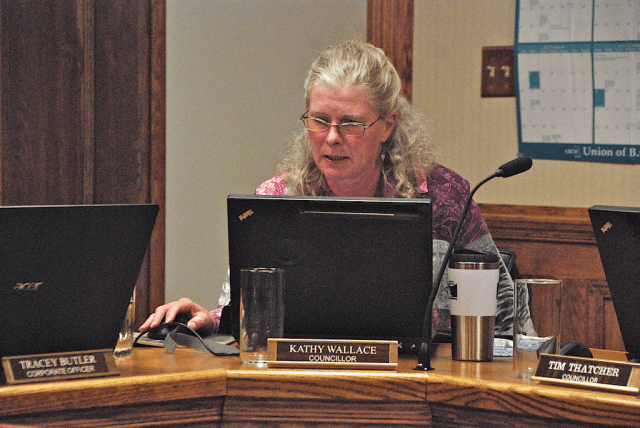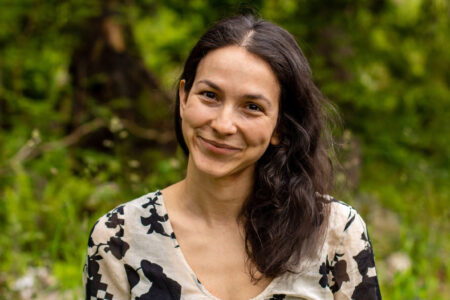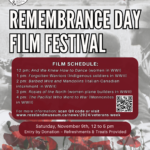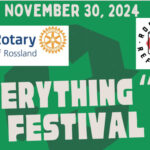Due process in the rear view mirror: Councillors consider the Columbia-Washington decision and the public's right to know
Council faced a conundrum: the final Columbia-Washington design debate involved legally sensitive tender information, but council had to balance this with highly charged public relations on parking and sidewalk issues that had generated strong—and varied—public opinions.
Ultimately, council debated their final design decision entirely behind closed doors to protect the tender information, but in the regular (public) council meeting that followed there was only one statement: Mayor Greg Granstrom said that council had removed parallel parking from the design and staff had negotiated project deletions that saved roughly $425,000.
When we reported the decision, Telegraph editor Adrian Barnes observed: “It’s pretty shocking that council can ignore the OCP, three design charrettes, various city reports, and the commissioned-and-tendered design—then not even bother to explain their decision in public!”
With this in mind, we approached all the councillors about both the design and the process that led there. We received replies from everybody except Coun. Jody Blomme and the mayor, who were unavailable for comment.
Councillor’s design opinions are reported in a separate article. Here we address the question, “Do you feel the process that led to this decision was appropriate?”
We also asked merchants and people in the street what they think. It’s all on video here.
Coun. Jill Spearn on process:
Spearn said, “The process was up front, we had a vote, we made the decision, and we are responsible for it.”
We clarified, “After months of waiting for council to come to a decision, all we got in the end was: “It’s angle parking,” end of story. People needed more, even just a round of the councillors in chambers after the in camera meeting to explain their stances on the issue without divulging delicate details of the tender. We understand there were sensitive tender-related topics that had to be dealt with behind closed doors, of course, but none of the arguments you’ve given needed to be in camera. Proper process would have involved an in camera discussion of the sensitive issues, and then a public debate to decide whether to go with angled parking or parallel.”
Spearn responded, “I think the public deserves to know how we came to that decision also. In hindsight, I wish we would have come out of in camera and had that debate so the information was in the public eye.”
Coun. Cary Fisher on process:
Fisher said, “In camera meetings have at times been raucous with heavy debate and thoughtful discussion. The gap in information is not that the information has not been discussed, but it was not discussed in a public forum.”
“If I made an error with anything I have done in the process, it is choosing not to debate issues in public when they were already debated in camera. This is not an excuse, but merely a statement of the facts as I see them.”
“Some of us new to council may have felt that [the debates] were heard when in fact our points were not made in public. This is an error in process.”
“While I understand that now, I am at a loss for remedies to things that have already been debated and voted on. In the future I will make a point to chase a discussion in public after a debate in camera.”
Coun. Kathy Wallace on process:
Wallace said, “I think that democratic representation means that you are electing us to manage these decisions. When there is a sensitivity, a delicacy, as there is in a tendering process, then you’ve given us that job. The expectation is very high to know every breath and thought that council takes. We are working in the best interests of the community. A tendering process is a highly legal process and it has to be done appropriately.”
We clarified: “A design change doesn’t necessarily have anything to do with the sensitive issues contained within the tender documents. For example, the reasons you’ve given [see article on design] don’t have anything to do with the tender.”
Wallace replied, “It was the way the process went. That’s about all I have to say about it. I’ve heard people in this community, a few voices, yell and scream, ‘Oh no, they’re in camera again!’ Well, there’s got to be a little bit of trust and realization that we’re doing our job.”
We commented: “People want to be involved in the process, and trust is maintained through communication. There has been a lack of communication here. It’s great, for example, that there’s the communication task force now. People will find that really helpful as construction proceeds. But for the actual decision, there wasn’t a statement in chambers, there wasn’t a newsletter consolidating what the debate had been. People feel left in the dark.”
Wallace said, “Some people feel left in the dark. Others are very happy with the decision.”
“One more comment, I know that controversy sells newspapers, but that’s not council’s job. You won’t see me answering any of those posts online. You won’t see me answering any of your email questions to council. That should happen in the chamber.”
I replied, “It’s not my job to sell newspapers. It’s my job to report on what’s going on. It makes my job a lot easier when council follows process and communicates clearly. And that hasn’t always been the case.”
Wallace said, “You know, that is your perspective. If you were on the other side of the table you might see it differently.”
“You say that you’re reporting ‘news.’ You have made a number of statements that have far crossed the line into comment. And just because you put ‘comment’ on top of it [in the title of the article] doesn’t mean that you can make things up.”
I replied, “Make things up. I look forward to seeing that, as I’ve asked council several times in my emails to them [to tell me if they have found factual errors.] If I have ‘crossed that line,’ as you said, I definitely look forward to being made aware of it.”
Wallace said, “I think you received a letter recently. Didn’t the publisher receive a letter recently from the city?”
So far, no letter has been received.
Coun. Tim Thatcher on process:
Thatcher said, “It was a democratic vote. There was no input from the CAO. It was a council decision.”
“It was an excellent and long debate. All the councillors had a good chance to express their views, and there were a lot of different views. We all listened to each other, and we listened to the public. I feel good about it.”
“To segregate the other decisions along with the parallel parking, I don’t know. It was all intertwined.”
“There was other stuff there that had to be discussed along with the parallel parking. I don’t know, that’s a tough question. Being intertwined, I think it was an appropriate decision-making process, I really do.”
“I suppose we could have had a debate just on parallel parking in public, but we probably would have just rehashed all that we covered in the in camera.”
Coun. Kathy Moore on process:
Moore said, “I believe we should try our best to conduct the business of the city in an open and transparent manner whenever possible, even if that is sometimes more inconvenient for council or staff. “
“Personally, I would have liked to have seen the discussion about the design take place in public. The citizens of Rossland were entitled to hear the pros and cons of the discussion about the design around the council table prior to the final vote being taken.”
“Any matters that needed to be kept confidential could have been handled in a closed door meeting. The design elements themselves which had so engaged the community deserved to be heard in a meeting that was open to the public.”
“That said, it is important for the citizens of Rossland to know that the CAO acted within the parameters set out by council. If this meeting had been held in an open meeting there would have been no question that his actions were directed by council. I view that as another unfortunate consequence of dealing with this important matter in a closed meeting.”

























